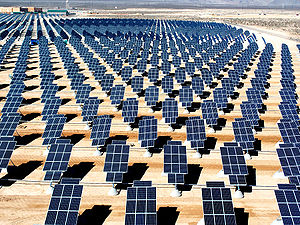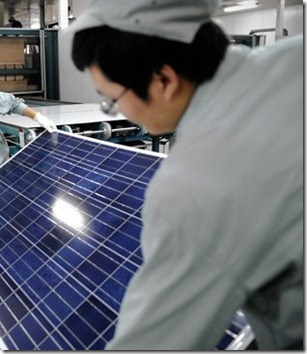Image: http://sustainablebenefits.com/wp-content/uploads/2016/08/solar-farm-panels.jpg
Solar energy has become increasingly popular over the last three decades. With consumers becoming ever more eco-conscious, we are seeing a huge rise in people wanting to live more sustainably and contribute to a more energy efficient planet. Considering the benefits of solar energy is now more essential than ever in adapting to a sustainable, environmentally-friendly lifestyle.
Nowadays, there are many different ways that we can lower our carbon footprint on a daily basis. From recycling to upcycling, from hydro to hybrids and renewables to new ways of thinking, there are a plethora of ways that we can lower our impact on the environment. Harnessing the energy if the sun through solar energy is the fastest growing source of new energy and is having a big impact on how Australians are making positive changes.
Continue reading below, to find out more about the advantages of solar energy and how using solar energy could positively impact your life.
Renewable Resource
The first and most well-known benefit of solar energy is that it is taken directly from the sun’s radiation. As sunlight hits the Earth, we can harness this natural energy resource to power homes, buildings and even cities. Of course, solar is a renewable resource as, although night falls and there are cloudy days, each and every day the radiation from the sun will reach the Earth’s surface and can be collected until the sun burns out, millions of years from now.
Solar Vs Grid Electricity Costs
Solar energy offers two types of resources for energy used in the home and workplace: thermal energy and sunlight converted directly into electricity.
Due to the rise in investigation, research and interest in solar power over the past 30 years, prices for solar energy facilities and installations have dropped considerably and are now much more affordable than in the past. There has also been a rise in grid electricity supply prices. As both thermal and solar panel energy fixtures are becoming cheaper and the investment return is being repaid so much quicker, it is unsurprising that more and more people are being persuaded to use solar energy because of the long-term economic benefits.
Additional Economic Advantages
As well as the savings that people experience from switching to solar energy, there are also various tax advantages and rebates from solar energy installations. These extra economic advantages are offered through regional and national governments, organisations with renewable energy goals and even electricity companies when extra collected energy is filtered to the grid.
Remote Access to Solar Energy
Even in the most remote places, the sun will be able to benefit those who are well prepared to receive solar energy. Not only in the capacity of solar panels on homes of rural-dwellers but also in ways that are not so evident. Solar energy can be used to heat water in areas with no access to hot running water or distil it, in areas with no drinking water.
Solar Energy’s Environmental Footprint
Although there are some negative environmental effects that come from the manufacturing and transporting of solar energy equipment, the overall consensus is that solar energy has far less damaging effects on the environment than other energy sources.
In addition to this, once solar thermal equipment or panelling is installed, there is no noise pollution or environmental contamination produced. Solar energy produces no greenhouse gas emissions because there is no burning of fossil fuels involved as the sunlight is converted directly into electricity.
Infinite Solar Power
From these benefits, it’s easy to understand that solar energy, as a source of renewable power, can help us in many ways. The sun is not likely to disappear in the near future, nor can it be monopolised by large corporations. The advantages of solar energy far outweigh any initial negative aspects of solar power, making it one of the best choices for both homeowners and businesses to make positive changes for the future.







